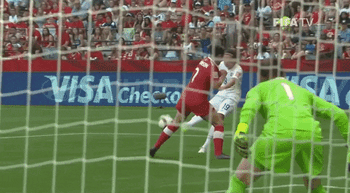Let's talk about it

The GIST: May is Mental Health Awareness month. And during unprecedented times like these, taking care of your mental health can be a bit of a struggle. So we wanted to highlight some stories of athletes managing their mental health and well-being, because even though they may seem like superheroes to us, at the end of the day, they’re human too.
Earlier this week, American swimmer Michael Phelps, the most decorated Olympian of all time (with a total of 28 medals), shared that the COVID-19 quarantine and pandemic has caused him to feel the most overwhelmed he’s ever felt — yes, even more overwhelmed than competing in the Olympics.
- To help manage things, Phelps has been hitting the gym for at least 90 minutes every morning (audacious task for us non-Olympians, but you get the point), writing motivational quotes on his mirror, using Talkspace (which he is on the board of, so there might be a wee bit of bias there) and journaling.
In February, two-time Olympic gold medalist and dear friend of The GIST, Canadian trampolinist Rosie MacLennan, opened up about her experience with anxiety and how it took away the fun of trampolining.
- Some things that help Rosie manage her anxiety are practicing gratitude, doing deep breathing exercises and taking the time to stretch. And, lucky for us, at 12:30 p.m. ET tomorrow, we’re hosting an Instagram Live with Rosie on our Canadian Instagram for The GIST’s 20 in 20 (where we ask 20 questions in 20 minutes — clever, we know). Grab a sandwich and tune in!
Last year, our favorite Aussie, WNBA superstar Liz Cambage, shared her lifelong battle with anxiety and depression, including how it would impact her game.
- Cambage explained how she treated her mental health like any other injury — taking time to rehab, talking to professionals and recognizing that her feelings were, and are, okay.
We’re living in some pretty strange times, and the increased stress, changes to routine and lack of physical connection can seriously affect mental health. It’s comforting to know that we’re not alone. You, these athletes, and us, your friends here at The GIST, are all in this together. If you ever feel the need to talk to someone, you can find some great resources here.
Enjoying this article? Want more?

Sign up for The GIST and receive the latest sports news straight to your inbox three times a week.

